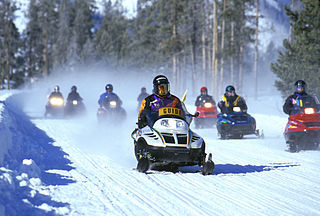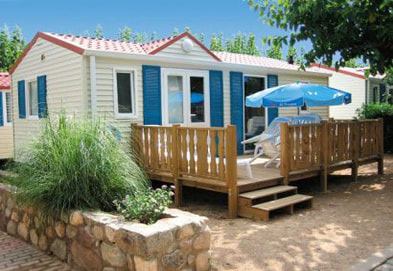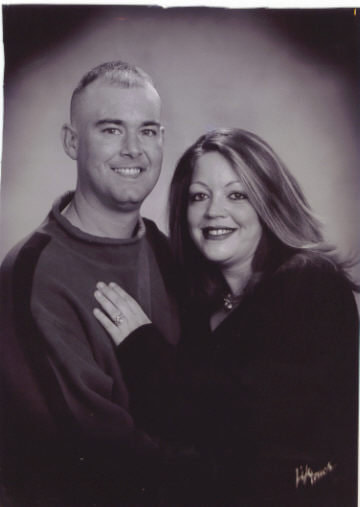Michigan Snowmobile Insurance: 7 Point Checklist to determine a good policy from a bad one10/22/2016 It's very easy to find snowmobile insurance in the state of Michigan. What's not so easy is finding a snowmobile policy that includes all of the coverages that you should be getting. Unlike auto insurance policies which are more standardized, the difference between a snowmobile insurance policy issued from one company to the next can be as different as night and day from a coverage standpoint. That's why it's important to know exactly what is and what is not covered on your snowmobile insurance policy. One major difference between snowmobile insurance policies has to do with how the policy is structured. is it an exclusive snowmobile insurance policy? Or is it snowmobile insurance attached on to a homeowners policy? That usually makes a huge difference because in general, stand alone exclusive snowmobile insurance policies are much better than snowmobile insurance policies attached to a homeowners policy. The surprising thing is that there is little, if any difference in premium between the two. But a lot of people simply don't know exactly what snowmobile insurance coverage they have, and whether or not it is adequate. In order for you to understand everything a snowmobile insurance policy should have, I've come up with a simple seven point checklist. Some of these seven points may not apply or be important to you, but many are critically important. You'll want to make sure that you have these coverages on your snowmobile insurance policy. So let's move along and get started: 7 Point Checklist of everything a good Snowmobile Insurance policy should have: 1. A good snowmobile insurance policy will not have any unreasonable restrictions as far as use of the snowmobile. This does not apply to using the snowmobile for either racing or commercial purposes. But for anything else, you should watch out for limited restrictions. This is especially true if you've attached your snowmobile insurance to a homeowners policy. Watch out for things like where and where not your snowmobile is covered. Some policies won't cover your snowmobile off of your property. Other policies put silly exclusions such as recreational use, restricting use to servicing the property etc. These restrictions are ridiculous to have on a snowmobile insurance policy. But yet many policies have them, and in some cases the snowmobile owner is unaware of it. Make sure you know exactly where, when and what you're doing with the snowmobile doesn't get excluded. 2. A good snowmobile insurance policy should always offer medical coverage. This includes both medical payments coverage and uninsured motorist bodily injury coverage. Most policies offer both coverages but others don't, especially those attached to homeowners policies. 3. Accessory coverage. Many people like to add accessories to their snowmobile. Some of these add ons are very expensive. So why not cover them also? A good snowmobile insurance with comprehensive and collision coverage will automatically add accessory coverage for free up to a certain amount (usually $2500-3000), and offer you extra coverage for an additional amount if wanted. 4. Trailer coverage. 65% of all snowmobile owners transport their sled with a trailer. But not all snowmobile insurance policies will cover the trailer itself. If you have a nice trailer, you might as well insure it. This coverage is usually very inexpensive. 5. Canadian coverage. A growing number of people take their sleds to Canada. There are a lot of great attractions for sledders in Canada. If you're one of those people that head north to sled, you want to make sure that your policy covers you. Not all policies cover you outside the US. 6. Total loss coverage on brand new, or nearly new snowmobiles. For those of you who bought brand-new sleds or almost brand-new, your sled will probably qualify for total loss coverage. This is very important coverage to have especially if you are financing your sled. Buying a brand new sled is comparable to buying a new car. Once you drive it off the lot it already starts depreciating. If you were to buy a brand-new sled and total it shortly after, the sleds market value may not be enough to cover your loan. Total loss coverage will help you help prevent you from ending up upside down on a loan. Some total loss coverages will even replace your sled for an exact or comparable model. 7. Roadside assistance. Some of the better snowmobile insurance policies will offer roadside assistance. You have to look at the specific details of what each policy covers because they vary greatly from one company to the next. But in most circumstances, roadside assistance is usually cheap and a good thing to have. Summary: Many people who buy snowmobile insurance don't realize all of the coverages available to them. If you already have snowmobile insurance, take a good look at your policy and see what is covered and what is not. When you compare it to the above checklist, you can see where the shortcomings are. If you're looking to buy snowmobile insurance this checklist will be a good guide for you to know the right questions to ask to ask your agent. Get a Michigan Snowmobile Insurance Quote with Lyles Insurance Call me for a Quote Related Blog Articles: Video: Things You Must Know When Buying Snowmobile Insurance in Michigan Video: Basics of a Snowmobile Insurance Policy How-To Guide for Buying Michigan Snowmobile Insurance Online
0 Comments
For those who own a mobile home in Ohio, the levels of coverage that you choose can be very important. Many people buy mobile home insurance policies without knowing or understanding the basic coverages, and in many cases select inadequate levels of coverage. And as important as mobile home coverage is, 26% of mobile homes go without insurance coverage at all. This can be a recipe for disaster if something happens to your home to where you can no longer live in it. In this article, I will explain to you the basics of a mobile home policy as far as the coverages are concerned. I will also answer some common frequently asked questions about mobile home insurance. Let's begin with the basic coverages of a mobile home insurance policy. Basics of a Mobile Home Insurance Policy Dwelling coverage – this is the main part of your policy. This covers your mobile home and any other structures that are permanently attached to it. This part is very important in that used select the right amount of coverage and also select the right deductible. If your mobile home is financed, your bank can tell you exactly what level of dwelling coverage they require you to carry and also tell you what the highest deductible you can carry on it is. Other structures coverage – this provides coverage on anything that's not permanently attached to your mobile home. Examples would be sheds, gazebos, hot tubs etc. Liability coverage – this coverage is also important because it covers you if someone else gets hurt on your property. It will also cover you for property damage in many cases. Depending on the company, the coverages that are available and what are excluded can vary greatly. So you need to read your policy carefully to know exactly what is and what is not covered. Personal property coverage – this would pay you for any covered loss of household items during a covered loss. For example: furniture appliances etc. Medical payments coverage – this covers other people for minor medical expenses that get hurt on your property. These are usually set at low levels usually between $500 and $1000. Damage to property of others coverage – this covers property that's owned by someone else that you were someone in your household has damaged. It's also offered normally in low amounts. FAQ's
What types of mobile home insurance are available? Insurance companies differ on what types of mobile homes they will accept. With the companies I carry, we can insure any mobile home, manufactured home, modular home, or fifth wheel campers. I can not find mobile home insurance because of previous claims I have filed. Can you help me? In most cases, Yes. Some of the companies I carry are a little more forgiving about claims. Some companies will allow up to five prior losses, depending on what the losses are. I just bought a mobile home through a bank loan. They tell me I need to buy a mobile home insurance. How much coverage do I need? That is something you need to find out before getting a mobile home insurance quote. The bank will tell you the minimal amount of coverage they require you to keep as long as your loan is still outstanding. Of course, you are not limited to those minimum requirements. You may choose higher levels of coverage if you would like. Can I insure my mobile home on a replacement cost basis? With most companies (not all), a mobile home 10 years or newer can be insured on a replacement cost basis. As long as you keep the policy in force, many companies will allow you to stay on replacement cost coverage until the home is 16 years old. After that, the policy will revert to an actual cash value basis on the 16th year. (NOTE*: those numbers vary from company to company, but these numbers are fairly standard). Get a Mobile Home Insurance Quote with Lyles Insurance Call me for a Quote Related Blog Articles: Video: Basics of a Mobile Home Insurance Policy Understanding the Basics of an Ohio Mobile Home Insurance Policy |
Author
Dan Lyles is an Independent Insurance Agent serving Ohio, Indiana, Michigan, Pennsylvania, Virginia and West Virginia.. Archives
March 2021
Categories
All
|




 RSS Feed
RSS Feed